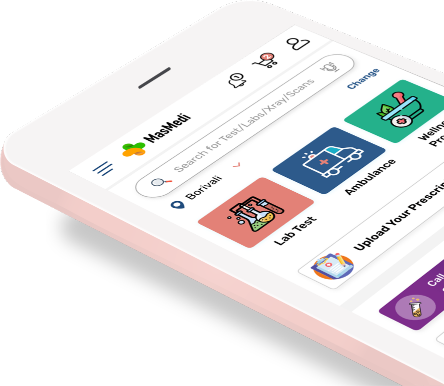Sample Type
Gender
Age Group
Blood
Male/Female
All Age Group
TOTAT CHOLESTEROL:- A complete cholesterol test is done to determine whether your cholesterol is high and to estimate your risk of heart attacks and other forms of heart disease and diseases of the blood vessels. A complete cholesterol test includes the calculation of four types of fats in your blood: Total cholesterol. HDL (high-density lipoprotein), or “good†cholesterol, absorbs cholesterol and carries it back to the liver. The liver then flushes it from the body. High levels of HDL cholesterol can lower your risk for heart disease and stroke. LDL cholesterol:- LDL (low-density lipoprotein), sometimes called “bad†cholesterol, makes up most of your bodys cholesterol. High levels of LDL cholesterol raise your risk for heart disease and stroke. VLDL cholesterol:- VLDL is one of the three main types of lipoproteins. VLDL contains the highest amount of triglycerides. VLDL is a type of bad cholesterol because it helps cholesterol build up on the walls of arteries. A lab test is used to measure the amount of VLDL in your blood. Total Cholesterol/HDL Ratio:- A complete cholesterol test is done to determine whether your cholesterol is high and to estimate your risk of heart attacks and other forms of heart disease and diseases of the blood vessels. A complete cholesterol test includes the calculation of four types of fats in your blood: Total cholesterol. Triglycerides are lipids (waxy fats) that give your body energy. Your body makes triglycerides and also gets it from the foods you eat. High triglycerides combined with high cholesterol raise your risk of heart attack, strokes and pancreatitis. HDL (high-density lipoprotein), or “good†cholesterol, absorbs cholesterol and carries it back to the liver. The liver then flushes it from the body. High levels of HDL cholesterol can lower your risk for heart disease and stroke.
Lipid Profile includes 6 Test(s)
best labs
Option Near Youlab comparison
As per your budgetAffordable
Price GuaranteedUNBIASED ADVICE
On LabsSUNDAY LAB
Labs available on SundaysTracking health status made easy with the app. Now available on both Google Play Store and App Store. Book health tests and access your smart reports and health trackers anytime anywhere.
